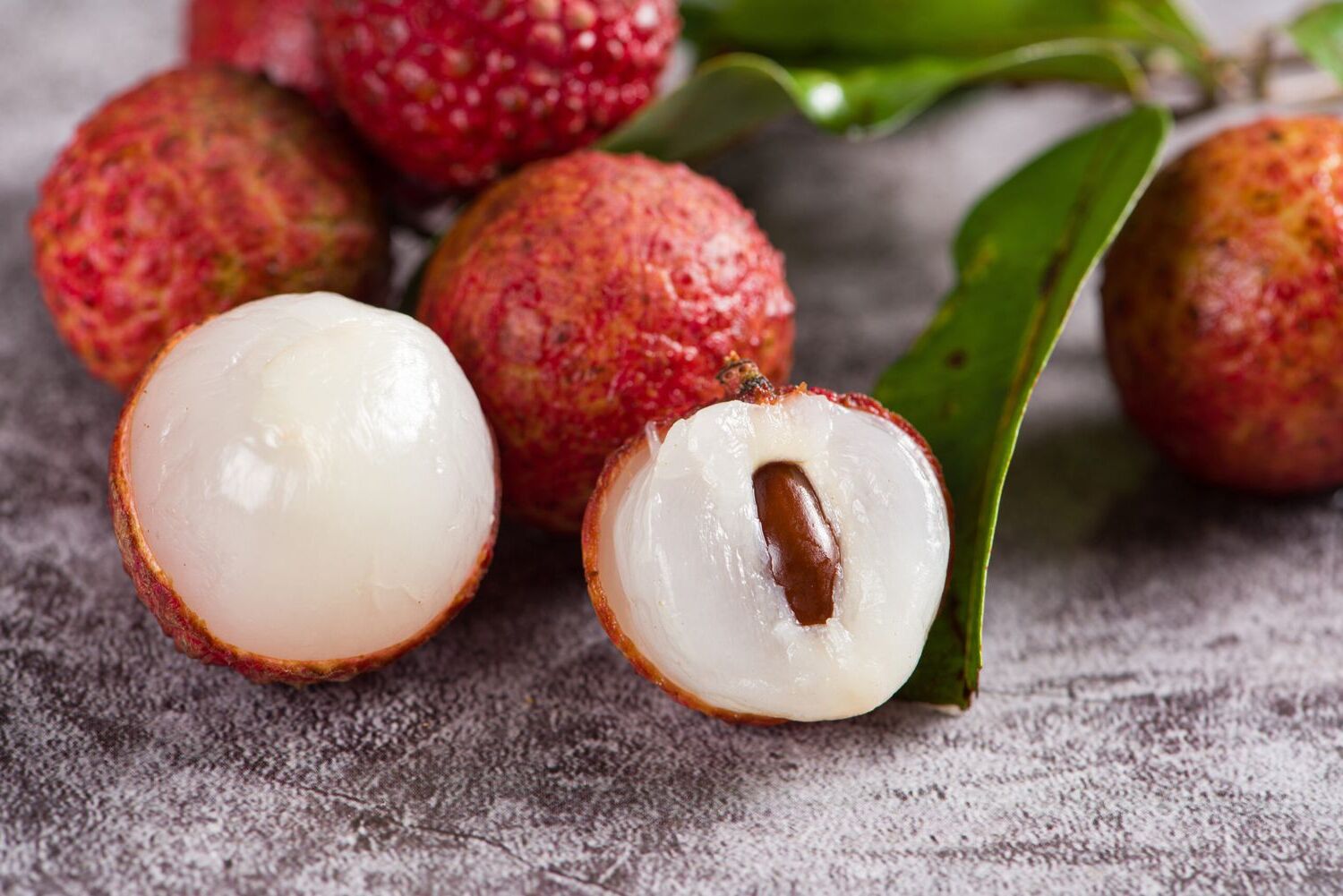
Ever wondered about the juicy, exotic fruit called lychee? This tropical delight, native to China, has been tantalizing taste buds for centuries. With its rough, red skin and sweet, translucent flesh, lychee isn't just a treat for the palate but also a powerhouse of nutrients. Packed with vitamin C, antioxidants, and fiber, this fruit offers numerous health benefits. But there's more to lychee than meets the eye. From its historical significance to its unique growing conditions, lychee has a fascinating story. Ready to learn some intriguing facts about this delicious fruit? Let's dive into the world of lychee!
Key Takeaways:
- Lychee is a sweet and juicy fruit packed with Vitamin C and antioxidants, making it a healthy and delicious addition to your diet. It can be enjoyed in salads, smoothies, and even savory dishes!
- Lychee has a rich history and cultural significance, symbolizing love, beauty, and good fortune in Chinese culture. It's not just a fruit; it's a symbol of happiness and prosperity!
What is Lychee?
Lychee is a tropical fruit known for its sweet, floral flavor and juicy texture. Originating from the Guangdong and Fujian provinces of China, this fruit has been cultivated for over 2,000 years. Let's dive into some fascinating facts about lychee.
-
Lychee is part of the soapberry family, which includes fruits like rambutan and longan.
-
The fruit has a rough, red outer skin that is inedible but easy to peel.
-
Inside, lychee contains translucent white flesh that is juicy and sweet.
-
Each lychee fruit has a single large seed in the center, which is not edible.
Nutritional Benefits of Lychee
Lychee is not just delicious; it also packs a nutritional punch. Here are some health benefits you might not know about.
-
Lychee is rich in Vitamin C, providing over 100% of the daily recommended intake in just one cup.
-
The fruit contains antioxidants like polyphenols, which help fight free radicals in the body.
-
Lychee is a good source of dietary fiber, aiding in digestion and promoting gut health.
-
It also contains essential minerals like potassium, copper, and magnesium.
Lychee in Culinary Uses
Lychee is versatile and can be used in various culinary applications. From desserts to drinks, here are some ways to enjoy this fruit.
-
Lychee is often used in fruit salads, adding a burst of sweetness and texture.
-
The fruit can be blended into smoothies for a refreshing and nutritious drink.
-
Lychee is a popular ingredient in Asian desserts like lychee jelly and lychee ice cream.
-
It can also be used in savory dishes, such as lychee chicken or lychee shrimp.
Lychee Around the World
While lychee originated in China, it has spread to various parts of the world. Here’s how different cultures enjoy lychee.
-
In China, lychee is often eaten fresh or dried and used in traditional medicine.
-
In India, lychee is a popular summer fruit and is often used in beverages like lychee juice.
-
In Thailand, lychee is commonly found in markets and used in both sweet and savory dishes.
-
In the United States, lychee is often found in Asian grocery stores and is becoming more popular in mainstream supermarkets.
Fun Facts About Lychee
Lychee has some interesting trivia that might surprise you. Here are a few fun facts to share with friends.
-
Lychee trees can grow up to 40 feet tall and live for over 1,000 years.
-
The fruit is often called "alligator strawberry" due to its bumpy skin and sweet taste.
-
Lychee has been a symbol of love and romance in Chinese culture for centuries.
-
The fruit was introduced to the Western world in the 18th century by French botanist Pierre Sonnerat.
Lychee in History and Culture
Lychee has a rich history and cultural significance, especially in Asia. Let’s explore some historical and cultural aspects of this fruit.
-
Ancient Chinese emperors considered lychee a delicacy and would have it transported over long distances.
-
Lychee is often featured in Chinese art and literature, symbolizing beauty and good fortune.
-
The fruit is a popular gift during Chinese New Year, representing happiness and prosperity.
-
In traditional Chinese medicine, lychee is believed to have cooling properties and is used to treat various ailments.
-
Lychee festivals are held in various parts of the world, celebrating the fruit's harvest season with music, dance, and, of course, lots of lychee.
Lychee: A Fruit Full of Surprises
Lychee isn't just a tasty treat; it's packed with nutrients and history. This small fruit offers a rich source of Vitamin C, antioxidants, and fiber, making it a healthy choice. Originating from China, lychee has traveled the world, becoming a favorite in many cultures. Its unique flavor and texture make it stand out among other fruits. Whether eaten fresh, dried, or in desserts, lychee never disappoints. Plus, its low-calorie content makes it a guilt-free snack. Next time you see lychee at the store, grab some and enjoy its many benefits. From boosting your immune system to adding a sweet touch to your meals, lychee is a fruit worth trying. So, don't miss out on this delightful and nutritious gem.
Frequently Asked Questions
Was this page helpful?
Our commitment to delivering trustworthy and engaging content is at the heart of what we do. Each fact on our site is contributed by real users like you, bringing a wealth of diverse insights and information. To ensure the highest standards of accuracy and reliability, our dedicated editors meticulously review each submission. This process guarantees that the facts we share are not only fascinating but also credible. Trust in our commitment to quality and authenticity as you explore and learn with us.


